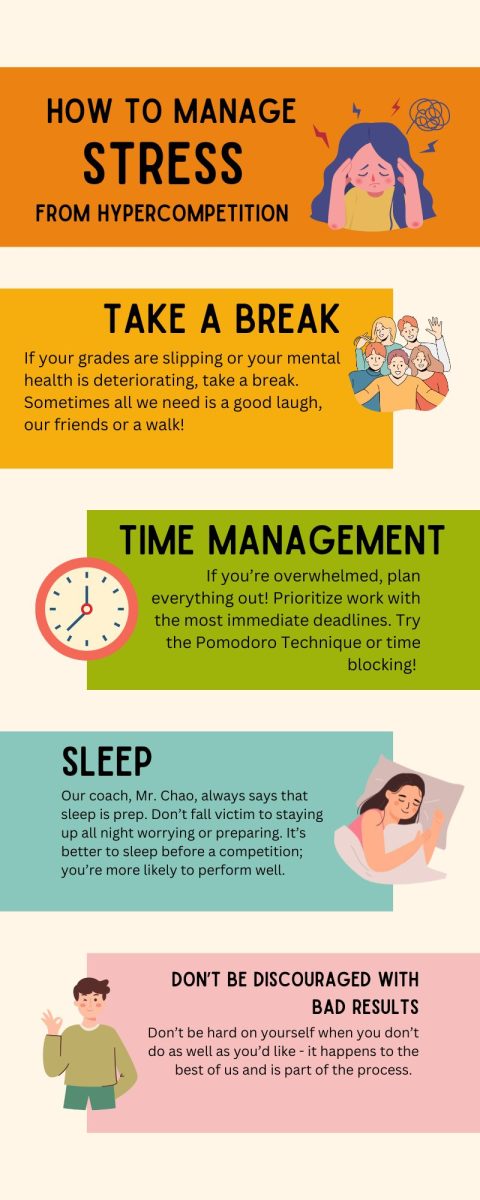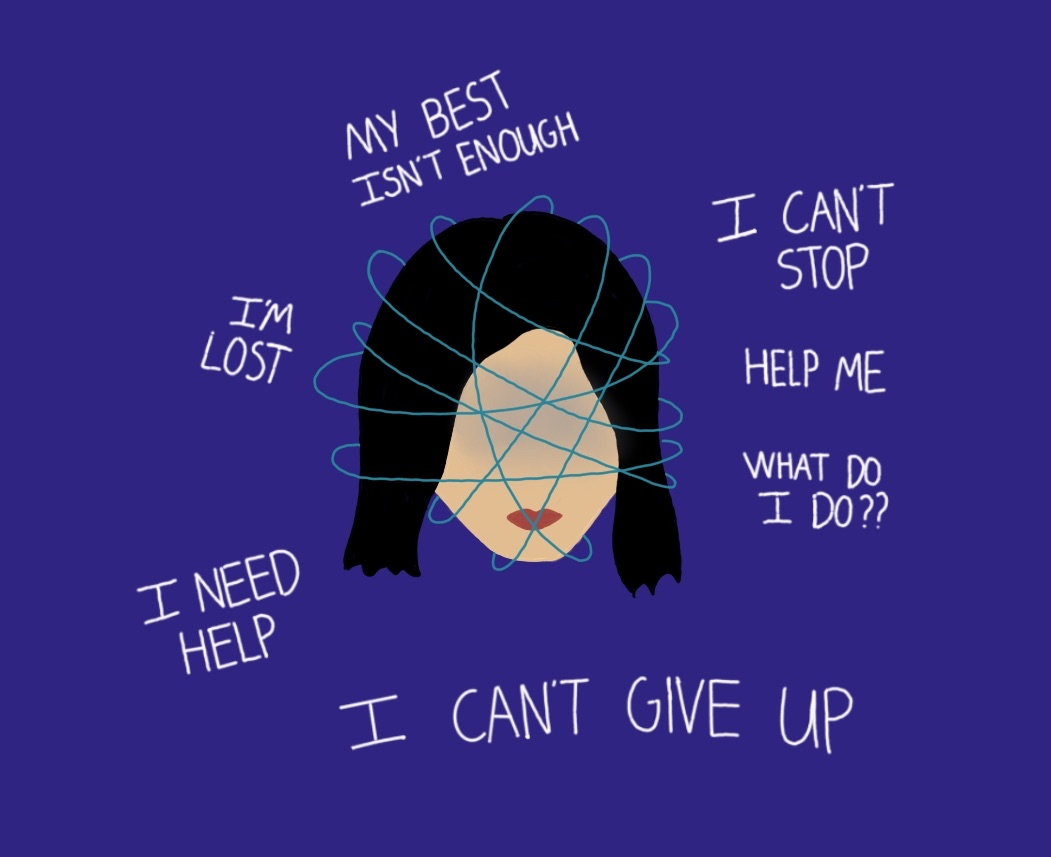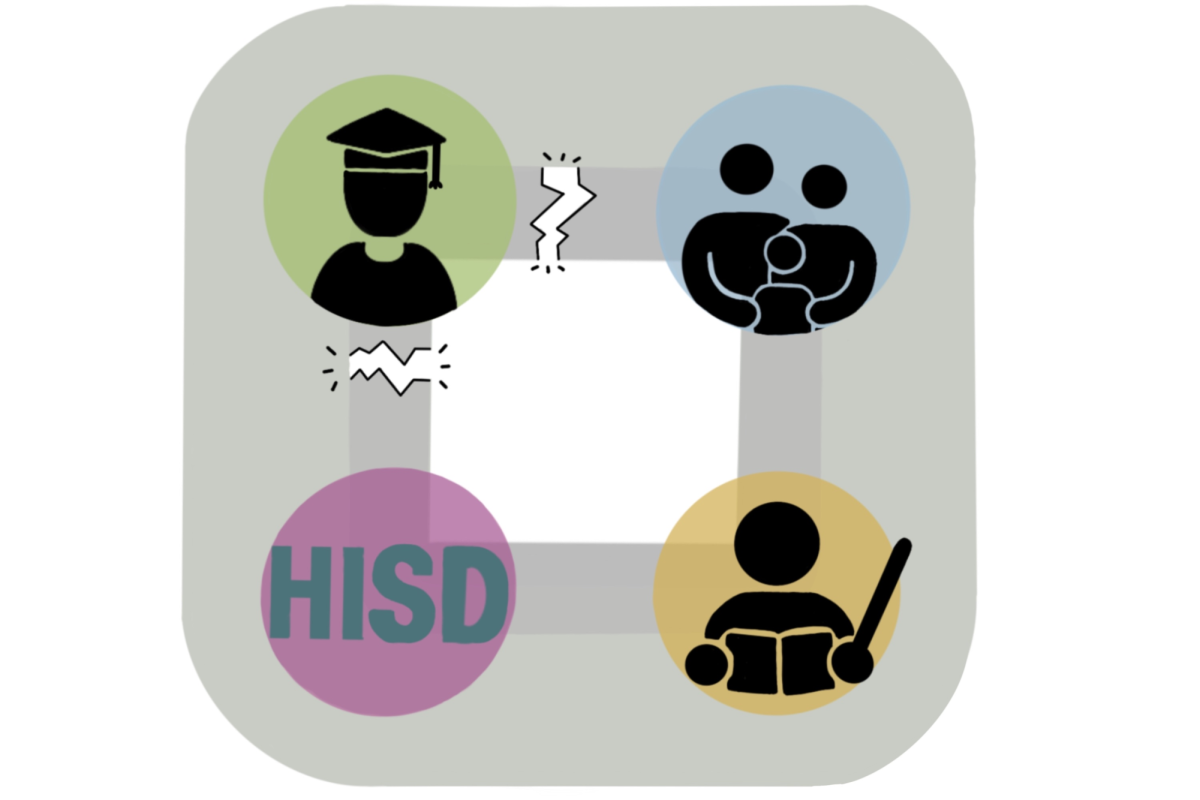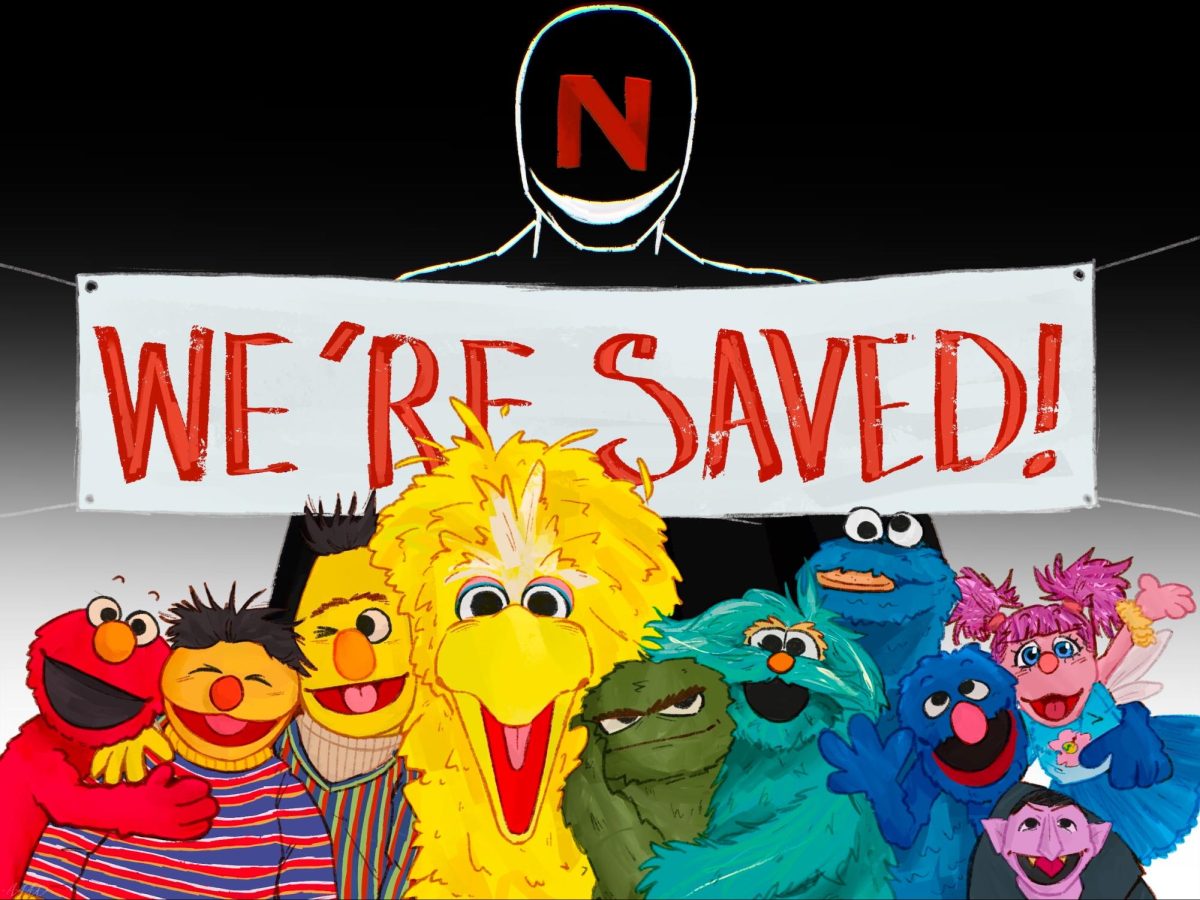Medals. Trophies. Picturesque smiles.
Everyone always sees the highs, but there’s always more to the story.
In every activity, students want to win, excel, be the best at what they do and validate their dedication. The issue is that they sometimes push themselves to the extreme, sacrificing their mental and physical well-being in the process.
Take it from us, two girls caught up in a toxic relationship with debate.
We’ve asked ourselves a million times over the last three years, “Why am I doing this?”
From under 45 minutes of sleep to over 15 hours without eating, there are moments when the internalized pressure to perform manifests itself in extreme scenarios.
The constant fear that you’ll be one-upped engulfs you, that if you’re not preparing for a tournament, someone else is. It generates an obsession with productivity. Breaks become nonsensical, mental health goes on the back burner and there’s no time for enjoyment.
Don’t get us wrong, we love debate. It’s shaped who we are today and left us with memories we will forever cherish, but we cannot neglect the hypercompetitive culture it fosters.
It’s the same in sports. Academics. You name it. The pressure to win eventually turns an innocent passion sour. In any competitive environment, students face a dilemma: crack under pressure or push back against it.
Now, more than ever, students feel the stress of performing well. In a study conducted by the American Psychological Association, 83% of teens identified school as a major stressor.
For senior Luke Wang, the root cause of the stress lies in our favorite game as high school students: the GPA game. Students aiming to be the top of their class often stack up on as many 5.0 courses as possible to boost their GPAs by just a few thousandths of a decimal point, to improve their class ranking by a couple of seats.
“I know some people who will literally sell their soul to get an A,” Wang said. “Not only that, but they will take the eighth class and the ninth class, as well as classes in the summer to make up for their imaginary ‘deficiencies’ in their GPA. It causes a lot of pressure to perform well.”
This hyper competitive nature in academics is incredibly unhealthy for students. It’s not the school that fosters it, however – it’s the students themselves. When students are so stuck up on trying to get the highest GPA possible, it creates a toxic cycle of constant comparison and a competitive academic culture where immorality is widespread.
“If you really care about your grades, you will compare yourself to your peers constantly,” Wang said. “That has major mental health impacts on you.”
The over-obsession with class rank and GPA creates a cutthroat environment for everyone. Students reduce themselves to mere numbers that don’t matter in the real world, not because they want to, but because we live in a system where we think numbers determine your future.
“A big part of high school, and a big part of what academics wants you to do, is build a person,” Wang said. “You want to be a good person. You want to be the one that prioritizes their personal relationships. If you get a lower grade than your friend, that’s fine. Is it really worth strangling your relationships with others just because you are insecure?”
Even more so than academics, in sports, there is far more direct comparison between players.
Junior and boy’s swim captain Pengjun “Jason” Zhao has swam for over eight years. For Zhao, there is a pressure to perform both for yourself and for your team.
“The pressure [I feel] is self-inflicted most of the time,” Zhao said. “If I don’t swim well, or if anyone doesn’t swim well, really they can only blame themselves for not working hard enough.”
Though she runs track now, the pressure that swim gave junior Sophia Hamdani eventually became too much.
“It’s more in my head, if anything,” Hamdani said. “That’s one of the reasons why I quit swim. I put so much pressure on every single swim meet. I used to cry a week in advance, because I’d just be so nervous. I lost the love for the sport for a little bit, which kind of sucked.”
The pressure put on athletes to do well isn’t just evident in swim. Hamdani competes in both varsity cross country and track and has been running since elementary school.
“Running recently got pretty mentally hard,” Hamdani said. “It’s just frustrating to not see results. I’m just like, ‘I have to get better. If I don’t get better, people see that I haven’t been doing as good,’ and those are hard conversations to have with people.”
The reality is that every competitive event has flaws that cause us stress and anxiety, but does that mean our first instinct should be to run away?
No.
Face those challenges head on.
Find solutions.
It’s impossible to escape our obsession with productivity and hypercompetition when it’s already ingrained into society, whether it’s the pressure to get into a prestigious college or the desire to get a promotion. You can quit debate, swim, track – anything – but that shouldn’t be your first instinct when facing your problems. Don’t be so quick to give up on your passions.
There’s no shame in quitting, but that should be a last resort, because overcoming the repercussions of hypercompetitiveness isn’t impossible.
One simple way to get rid of it is by building relationships with fellow competitors and fostering a collaborative environment.
“I’d say the main thing to get rid of [hypercompetitiveness] is becoming friends with [your competitors], or just even talking to them, because you get to realize you have so much more in common,” Hamdani said. “It removed the stigma around it. Just more communication, just seeing them as people.”
On the flip side, don’t just purely focus on curating relationships with others, focus on your own mindset as well.
“Just focus on improvement,” Zhao said. “The support of teammates, your friends, your coach and your family is very important to stay mentally fit and in the right mindset.”
So for the millionth (and one) time, “why are we doing debate?”
It’s simple. We love it.
But we also need to set some boundaries. Debate shouldn’t take precedence over our mental and physical health. Debate shouldn’t put so much pressure on us. Debate shouldn’t devour us.
In every toxic relationship, you have two choices – leave it or fix it.
We’ll fix it.











Jason Chen • Feb 23, 2025 at 11:02 am
Yeah debate do be like that. Thanks for writing such an informative story!
Clementine Behelfer • Feb 21, 2025 at 11:59 am
This is such an important topic and is something that isn’t discussed enough. Good job girls!!
Dhara Agrawal • Feb 20, 2025 at 5:29 pm
This is so relatable! It seems like I have these exact thoughts every day now.
Aisha Ghuman • Feb 19, 2025 at 11:54 am
Excellent analysis.